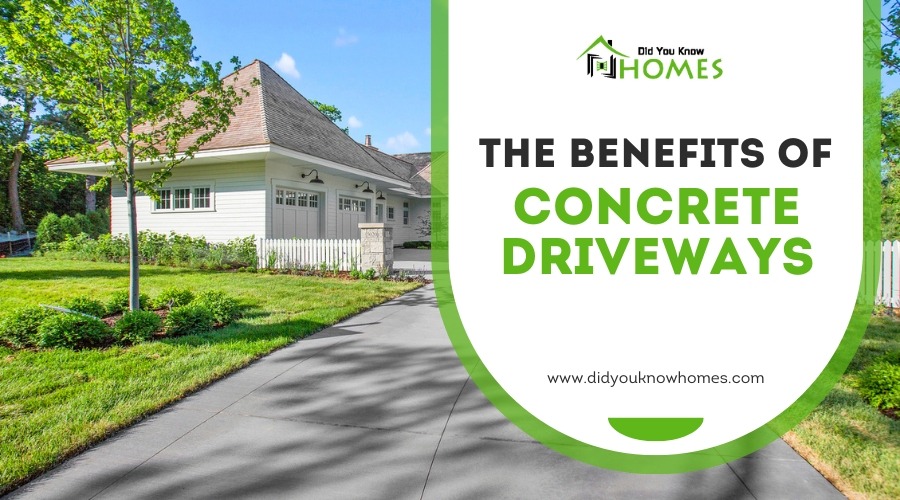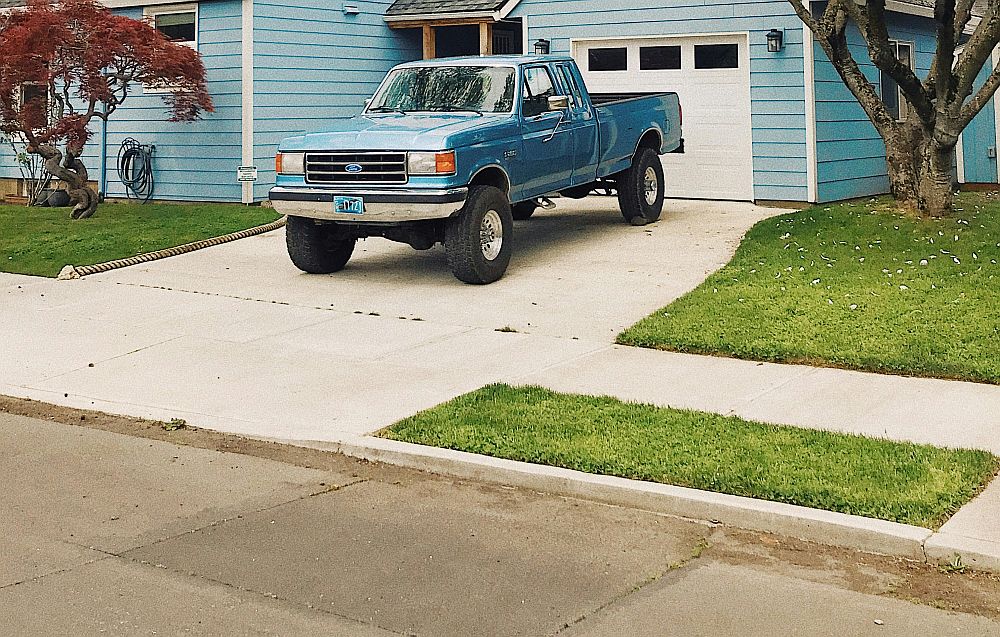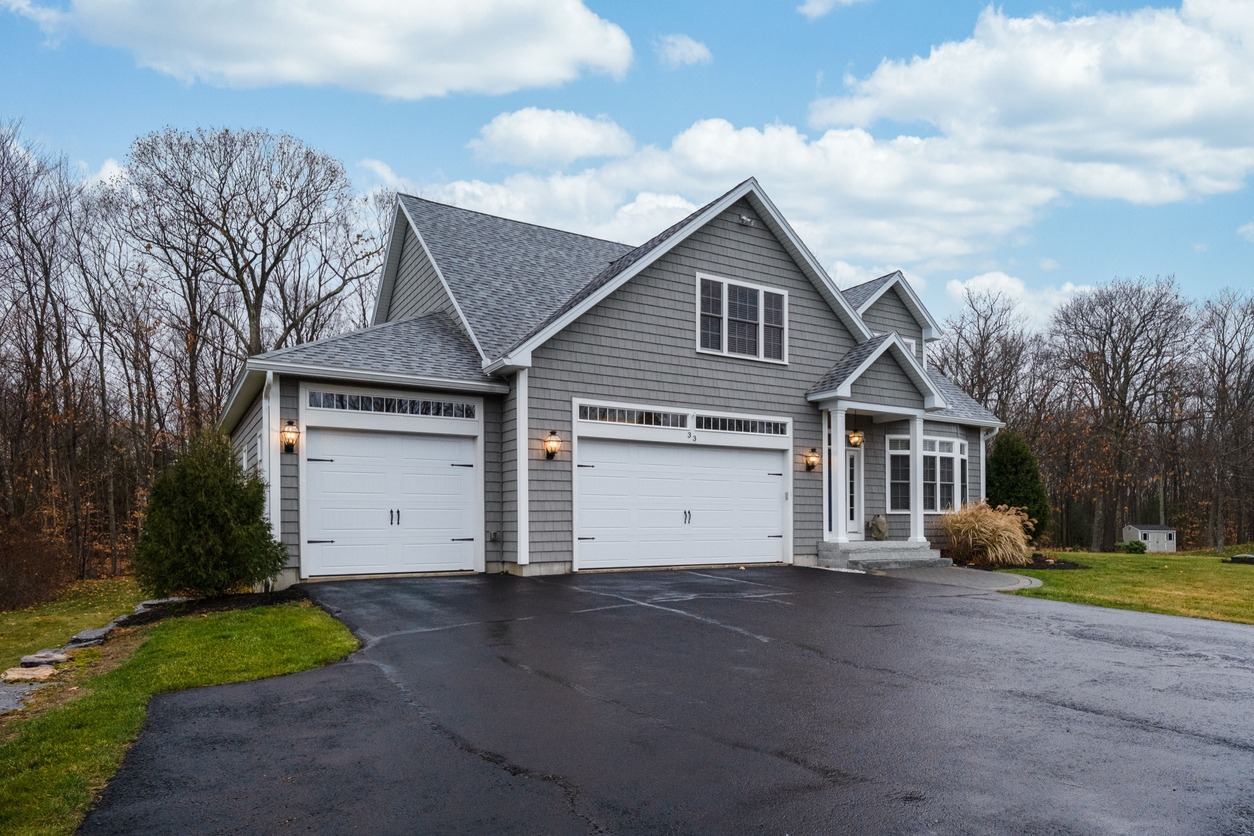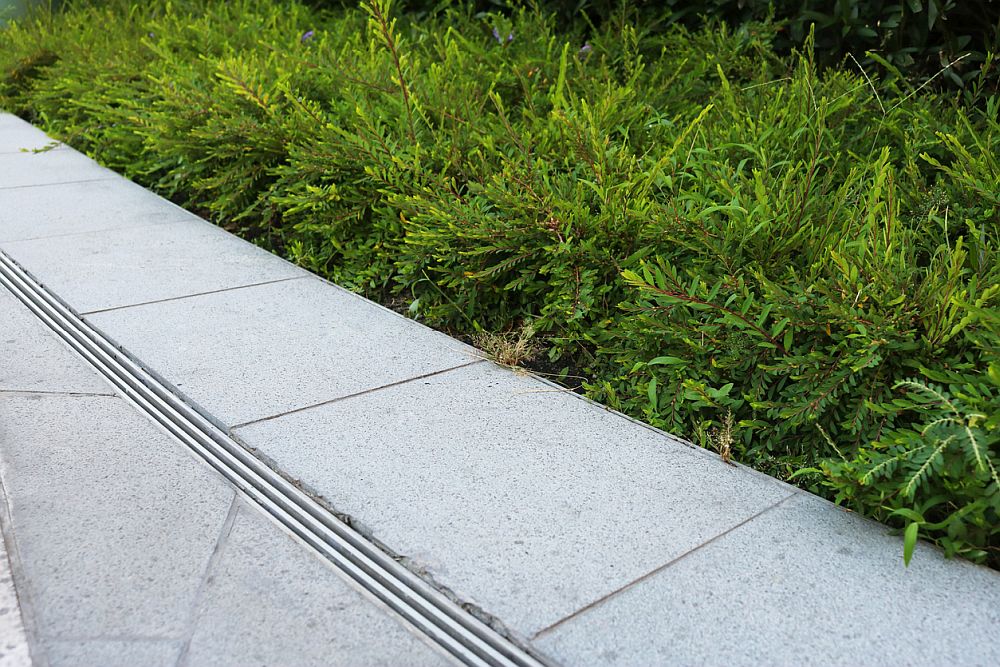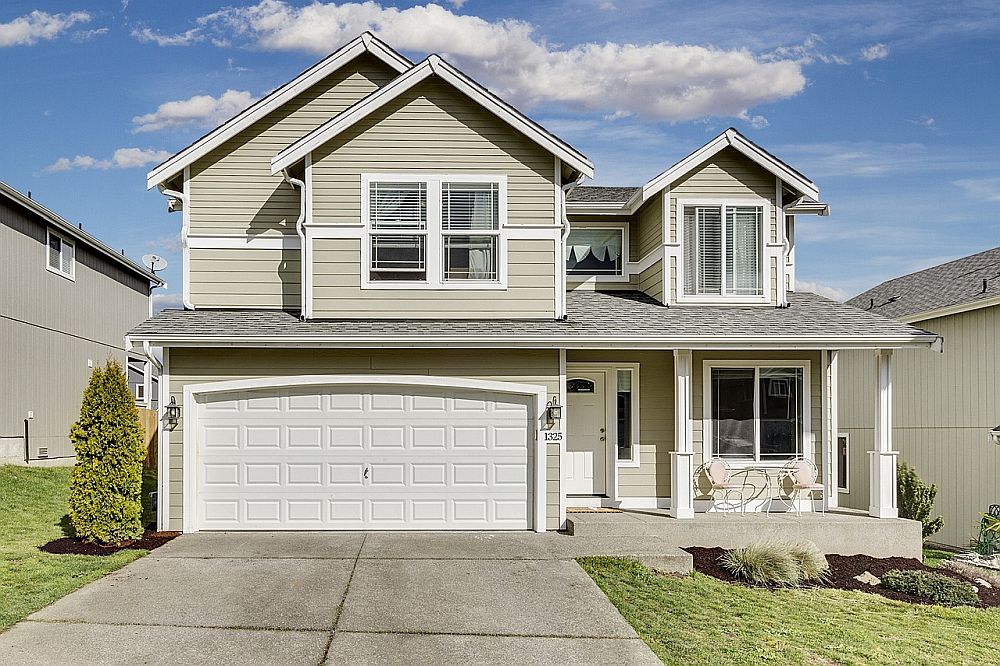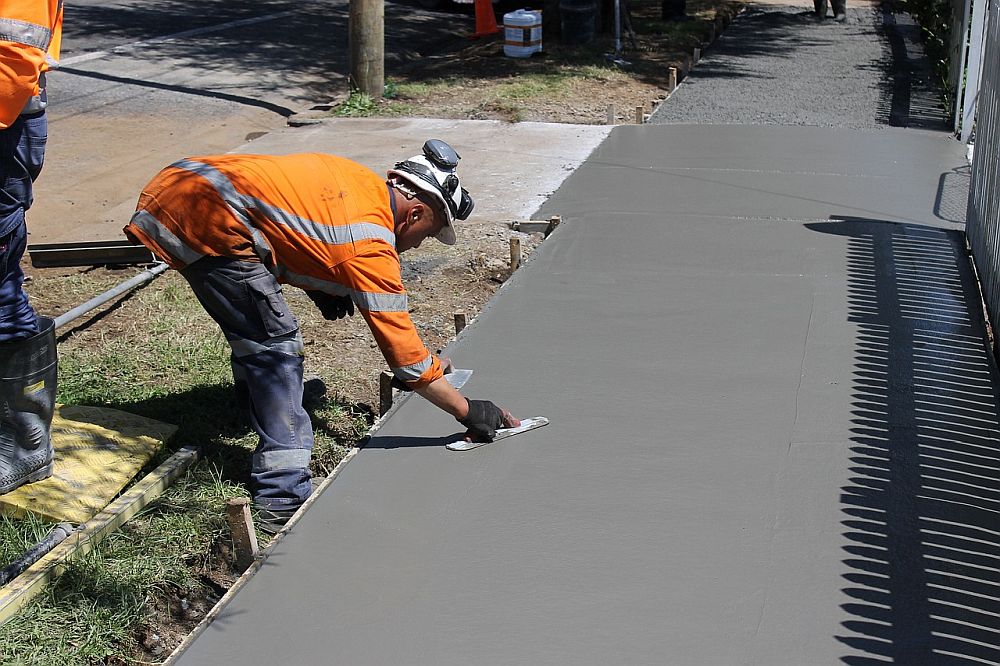Opting for a concrete driveway is a strategic decision that marries durability with aesthetic versatility, offering homeowners a practical yet beautiful solution for their property. By choosing concrete, you’re investing in a material known for its exceptional strength and low maintenance requirements, while also opening up a world of customization options to match any home style. This guide explores the comprehensive benefits of concrete driveways, comparing them to other materials like asphalt, gravel, and pavers, and shedding light on their environmental advantages and impact on property value. With insights into maintenance best practices and cost benefits over time, you’ll discover why concrete is not just a choice, but a long-term investment in the appeal and functionality of your home.
What is a concrete driveway?
A concrete driveway is a durable, solid surface designed to provide a pathway to a garage or parking space within residential areas. It is crafted from a mixture of cement, water, sand, and gravel, which combines and hardens into a formidable platform capable of enduring both heavy loads and the elements. The appeal of concrete driveways lies in their longevity, low maintenance needs, and the vast array of customization options available. These options allow for a variety of finishes and colors, making it easy to match the driveway to any home’s aesthetic. Homeowners favor concrete driveways for their perfect blend of functionality and curb appeal, making them a practical choice for those looking to enhance their property’s value and appearance.
Why choose concrete for driveways?
Choosing concrete for driveways brings a multitude of benefits, chief among them being its durability and strength. This material is capable of withstanding heavy vehicles and adverse weather conditions, making it a long-lasting option for any home. Another significant advantage is its low maintenance requirements. Unlike other materials that may need frequent repairs or refinishing, concrete driveways demand minimal upkeep, saving homeowners time and money in the long run.
Moreover, concrete offers unparalleled aesthetic flexibility and customization. Whether you prefer a simple, sleek look or intricate patterns and colors, concrete can be tailored to meet your specific design preferences. This ability to customize not only enhances the curb appeal of your property but also allows for a unique expression of personal style. In summary, concrete driveways stand out for their practicality, durability, and aesthetic versatility, making them an excellent choice for homeowners prioritizing both function and form.
Durability and Strength
Concrete driveways are renowned for their durability and strength, providing a sturdy surface capable of supporting heavy vehicles and resisting harsh weather. This resilience ensures longevity, making concrete a cost-effective choice as it minimizes the need for frequent repairs or replacements.
| Material | Average Lifespan (Years) | Conditions |
|---|---|---|
| Concrete | 30-40 | With proper maintenance |
| Asphalt | 10-20 | With frequent sealing |
| Gravel | Variable | Requires regular replenishment |
| Pavers | 25-40 | With proper installation and maintenance |
Low Maintenance Requirements
A significant advantage of concrete driveways is their low maintenance requirements. They stand out for needing minimal upkeep compared to other materials. Routine cleaning and occasional sealing are usually all that’s required to keep them in top condition, offering homeowners peace of mind and savings on maintenance costs.
| Material | Annual Maintenance Cost | Maintenance Activities |
|---|---|---|
| Concrete | $50 – $150 | Sealing, occasional power washing |
| Asphalt | $100 – $200 | Sealing, crack repair |
| Gravel | $200 – $400 | Replenishment, leveling |
| Pavers | $100 – $300 | Weed control, stabilization |
Aesthetic Flexibility and Customization
Concrete driveways offer unmatched aesthetic flexibility and customization. Homeowners can select from a wide array of colors, finishes, and patterns, enabling them to design a driveway that perfectly matches their home’s style and personal preferences. This level of customization not only boosts the driveway’s visual appeal but also contributes to enhancing the overall property value.
| Customization Option | Description |
|---|---|
| Stamped Concrete | Mimics the look of brick, stone, or wood |
| Colored Concrete | Available in a wide range of colors through dyes or stains |
| Polished Concrete | Creates a sleek, reflective surface |
| Exposed Aggregate | Reveals the aggregate for a textured appearance |
How does concrete compare to other driveway materials?
When evaluating concrete against other driveway materials, its advantages become clear. Concrete surpasses asphalt in terms of longevity and maintenance; asphalt driveways require more frequent sealing and resurfacing, making concrete a more durable and less labor-intensive option. Compared to gravel, concrete offers superior durability and stability, as gravel can shift and require periodic replenishment and leveling. While pavers share the aesthetic appeal and customization possibilities of concrete, they typically involve higher costs and a more complex installation process. These comparisons underscore concrete’s unique blend of durability, low maintenance, and aesthetic versatility, positioning it as the preferred choice for homeowners looking for a reliable and attractive driveway solution.
Asphalt: Shorter Lifespan, More Maintenance
Asphalt driveways typically have a shorter lifespan than their concrete counterparts, requiring more frequent maintenance efforts. This includes the need for periodic sealing to prevent water penetration and cracking, making asphalt a higher-maintenance choice over the long term.
Gravel: Less Durable, Prone to Displacement
Gravel driveways may initially seem cost-effective but are less durable and prone to displacement. Regular maintenance tasks, such as replenishing gravel and leveling the surface, are necessary to combat scattering and ensure a smooth driveway, increasing upkeep efforts and costs.
Pavers: Higher Cost, Complex Installation
Pavers stand out for their aesthetic versatility and customization options but come with a higher cost and a more complex installation process. The labor-intensive laying of pavers, along with the need for precise alignment and stabilization, contributes to higher initial expenses and installation challenges.
| Material | Average Lifespan (Years) | Initial Cost (per sq ft) | Maintenance Cost (over 10 years) | Installation Complexity |
|---|---|---|---|---|
| Concrete | 30-40 | $5 – $10 | $200 – $400 | Moderate |
| Asphalt | 10-20 | $2 – $5 | $500 – $1,000 | Easy |
| Gravel | Variable | $1 – $3 | $1,000 – $2,000 | Easy |
| Pavers | 25-40 | $10 – $25 | $300 – $600 | High |
Note: Costs can vary based on location, material quality, and market conditions.
What are the environmental benefits of concrete driveways?
Concrete driveways contribute positively to the environment through several key features. Their reflectivity plays a crucial role in reducing heat absorption, which helps in mitigating the urban heat island effect. This characteristic ensures that areas surrounding the driveway remain cooler, promoting a more comfortable and sustainable living environment.
Moreover, the availability of permeable concrete options enhances water management by allowing rainwater to percolate through the surface. This process aids in the replenishment of groundwater, addressing runoff issues and contributing to the sustainability of local water resources. These environmental benefits underscore concrete driveways as an eco-friendly choice, aligning with efforts to conserve and protect our natural surroundings.
Reflectivity Reduces Heat Absorption
The reflective properties of concrete driveways significantly reduce heat absorption, contributing to a cooler environment around the home. Studies have shown that concrete surfaces can be up to 30-50% cooler than asphalt surfaces under the same conditions, which not only mitigates the urban heat island effect but also reduces the need for air conditioning, leading to energy savings.
| Surface Type | Temperature Reduction | Impact on Local Temperatures |
|---|---|---|
| Concrete | Up to 50% cooler than asphalt | Significantly reduces urban heat island effect |
| Asphalt | – | Increases local temperatures |
Permeable Options for Better Water Management
Permeable concrete options enhance water management by allowing rainwater to seep through the driveway and into the soil beneath. This innovative approach to driveway construction has been shown to significantly reduce surface runoff, thereby minimizing the risk of flooding and erosion. Studies and real-world applications have demonstrated that permeable concrete can effectively absorb and manage stormwater, replenishing groundwater supplies and reducing the burden on municipal stormwater systems.
| Study/Example | Location | Outcome |
|---|---|---|
| Permeable Pavement Implementation | Various Urban Areas | Reduced surface runoff by up to 90% |
| Groundwater Replenishment Project | Residential Areas | Increased groundwater levels, reduced flood risk |
How does a concrete driveway increase property value?
A concrete driveway can significantly enhance curb appeal, presenting a polished and well-maintained appearance that complements the home’s exterior. This aesthetic enhancement not only makes a positive first impression but also contributes to the overall attractiveness of the property. Furthermore, the longevity and durability of concrete appeal to potential buyers, who often seek homes that require minimal future maintenance. These attributes can lead to an increase in property value, positioning a concrete driveway as both a practical and a financially savvy investment for homeowners.
Enhances Curb Appeal
A concrete driveway significantly enhances curb appeal, offering a sleek and polished appearance that can be tailored to match the home’s exterior. The flexibility in customization of colors and patterns allows for a unique aesthetic that captivates visitors and potential buyers, making a lasting first impression.
Case Study:
- Before and After Analysis: A study conducted by the National Association of Realtors found that homes with well-maintained concrete driveways could see an increase in property value by up to 5-10%. The curb appeal factor plays a significant role in first impressions, potentially reducing the time a property spends on the market.
| Improvement | Estimated Value Increase | Cost Recovery |
|---|---|---|
| Concrete Driveway | 5-10% of home value | 80-100% |
Longevity Appeals to Buyers
The longevity of concrete driveways is a key attribute that resonates with buyers. Their durability and resistance to the elements mean less maintenance and repair costs over time. This long-term reliability and cost-efficiency are highly attractive to those in the market for a new home, enhancing the property’s overall appeal and value.
Survey Data:
- Homebuyer Preferences: According to a survey by the American Society of Landscape Architects, 78% of respondents rated outdoor spaces and durable home features as “very important” when considering a home purchase. Concrete driveways, known for their durability and low maintenance, align closely with these preferences, making properties more appealing to potential buyers.
By improving curb appeal and offering the durability that appeals to buyers, concrete driveways not only enhance the visual attractiveness of a property but also contribute to its market value, making them a wise investment for homeowners looking to sell or simply increase their home’s value.
What are the long-term cost benefits of concrete driveways?
Concrete driveways present significant long-term cost benefits. The initial investment may seem higher compared to other materials, but this is quickly balanced out by the driveway’s extended lifespan and lower maintenance needs. Homeowners find value in not having to frequently invest in repairs, resurfacing, or replacements that are often necessary with less durable materials. Moreover, concrete’s exceptional durability reduces the risk of damage from heavy vehicles or adverse weather, further diminishing potential repair costs. Collectively, these advantages underscore concrete driveways as a cost-effective solution, ensuring homeowners enjoy both financial savings and enduring quality over time.
Initial Investment vs. Lifespan Comparison
The initial investment for a concrete driveway, while typically higher than alternatives, is balanced by its remarkably extended lifespan. This durability means that concrete driveways do not need to be replaced as frequently as those made from asphalt or gravel, offering long-term savings. Evaluating the cost over the driveway’s lifetime, concrete emerges as a cost-effective option, providing enduring value that far surpasses the upfront expense.
| Material | Initial Cost (per sq ft) | Lifespan (Years) | Total Cost Over 30 Years (Maintenance + Initial) |
|---|---|---|---|
| Concrete | $5 – $10 | 30-40 | $1,500 – $3,000 |
| Asphalt | $2 – $5 | 10-20 | $4,000 – $8,000 |
| Gravel | $1 – $3 | 5-10 (with frequent maintenance) | $3,000 – $6,000 |
| Pavers | $10 – $25 | 25-40 | $2,500 – $5,000 |
Note: Maintenance costs are estimated based on average annual expenses for repairs, resurfacing, or replenishment required for each material type.
Lower Repair and Maintenance Costs over Time
Concrete driveways are distinguished by their lower repair and maintenance costs over time. In contrast to other driveway materials that necessitate regular and often costly maintenance routines, concrete requires minimal upkeep to preserve its condition. This inherent durability significantly reduces the financial burden of ongoing repairs, making concrete an economically advantageous choice for homeowners seeking both quality and cost-efficiency in their driveway investment.
| Material | Average Annual Maintenance Cost |
|---|---|
| Concrete | $50 – $100 |
| Asphalt | $150 – $300 |
| Gravel | $200 – $400 |
| Pavers | $100 – $200 |
How to maintain a concrete driveway for longevity?
Maintaining the longevity of a concrete driveway hinges on several essential practices. Regular cleaning is paramount; it prevents the accumulation of substances like dirt and oil that can stain or degrade the surface over time. Applying a sealant offers a protective barrier against moisture, ultraviolet radiation, and chemical spills, significantly extending the driveway’s lifespan. Furthermore, promptly addressing cracks is critical in preventing minor flaws from developing into extensive damage. Adherence to these maintenance steps ensures the concrete driveway remains both structurally sound and visually appealing, thereby maximizing its longevity and overall value to the homeowner.
Regular Cleaning to Prevent Stains
Regular cleaning plays a pivotal role in maintaining the aesthetic and structural integrity of a concrete driveway. It effectively prevents stains caused by oil, grease, and other substances from setting in. Routine actions like sweeping and periodic power washing can thwart these substances from penetrating the surface, ensuring the driveway remains in pristine condition.
Sealing to Protect Surface
Sealing the concrete driveway is a critical maintenance step that protects the surface from various elements. This protective layer shields against moisture, harmful UV rays, and chemical spills, significantly prolonging the driveway’s lifespan. By sealing the surface, homeowners can preserve the driveway’s visual appeal and structural integrity for years to come.
Prompt Crack Repair to Avoid Major Damage
Addressing cracks as soon as they appear is essential to avoid major damage to a concrete driveway. Prompt crack repair prevents small fissures from expanding and causing extensive harm, safeguarding the driveway’s overall structure. Regular inspections for any signs of cracking and immediate corrective action can save significant repair costs and maintain the driveway’s durability.

